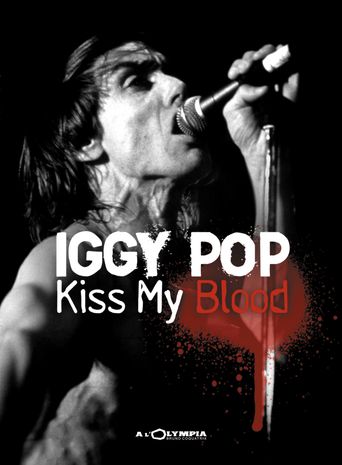

Matlock stuck around for the following album, Soldier, writing one track and co-writing another three (although he soon left again after an altercation over the final mix). Iggy had recruited Rich Kids bass guitarist and ex-Sex Pistol Glen Matlock for the New Values tour. It was wonderful.” The album should have sold more in 1977, but Elvis Presley’s unexpected death coincided with Iggy’s own release schedule, meaning all of RCA’s resources were used up reprinting the King’s back catalogue. The opposing pressures created this place that they all studiously and nobody bugged you. “It created a wonderful island, the same way that volcanos created islands in the sea. “The wall was beautiful,” said the former. Lust For Life is also the title track of the first album written and conceived entirely in Berlin for both Iggy and Bowie. The song got a boost in the 90s when it was prominently used in the film Trainspotting, and thanks to that exposure, it now rivals The Passenger as Pop’s best-known song. Iggy Pop then improvised the lyrics, alluding to the clean regime he and Bowie were trying to observe (“No more beating my brains with the liquor and drugs”), while the “that’s like hypnotising chickens” line comes straight from the character Johnny Yen in William Buroughs’ novel The Ticket That Exploded.


The insistent beat was reinforced by drummer Hunt Sales and his brother Tony on bass, while guitarist Carlos Alomar said its driving rhythm was so dominating that to play something on the offbeat was out of the question. The Armed Forces Network “was one of the few things that was in English on the telly”, said Bowie, “and it had this great pulsating riff at the beginning of the news”. The unlikely musical germ of an idea for Lust For Life came when Bowie attempted to imitate the Armed Forces Network call signal with his ukulele (he was apparently waiting for Starsky and Hutch to come on the television in Germany). Watch Iggy Pop and David Bowie perform Funtime in 1977 – video 4. Based on the pair’s partying experiences in LA, the mechanical tenacity of the backing track and the dehumanised singing represent repeatedly going through the motions when all the fun has dried up. In fact, it’s a deadpan and almost threatening delivery that juxtaposes the devil-may-care lyrics, making it all the more sinister and disconcerting. It’s written, unusually, in the first person plural (“Hey baby we like your lips / Hey baby we like your pants”), and Bowie’s backing vocal attacks high in the mix, with both voices offering confrontation. Funtimeįuntime followed the Stooges’ Fun House and No Fun in fact it was the Sex Pistols’ cover of the latter (which eventually soundtracked their messy unravelling at the Winterland Ballroom) that first inspired Iggy to revisit the familiar motif. “Bowie kept saying, ‘But we gotta call back the drummer, you’re not gonna have that freaky sound on the tape!’ And I replied, ‘Hey, no way, it kicks ass, it’s better than a drummer.’” 3. “We recorded the song with a lousy drum machine,” Pop recalled later. Nightclubbing throbs with the sleazy ambience of an underground Kreuzberg club, though with the persistent disco thud slowed down to create the kind of disorientating effect one might experience while heavily sedated. In his Iggy biography Open Up and Bleed, Paul Trynka writes that drummer Michel Santangeli was packed off back to Brittany before he’d even realised they’d started recording, while guitarist Phil Palmer was asked to imagine and replicate the sounds one might encounter walking past the clubs of Wardour Street. The recording techniques of the pair were said to be unorthodox and eccentric. Minimalist, electronic and experimental, it was recorded at the famous Château d’Hérouville in Val d’Oise, before being finished off in Munich and Berlin. Iggy managed to release two albums in 1977, the first of which – The Idiot, named after the Dostoevsky novel – was a far cry from the Stooges. The 18 months they spent together would turn out to be the most productive period of both their lives. Their counterintuitive logic led them to try to clean up their lifestyles by moving from LA to Berlin, the heroin capital of the world, but they showed a surprising degree of restraint while living there (for a while anyway). Despite their narcotic proclivities, David Bowie and Iggy Pop were good for each other.


 0 kommentar(er)
0 kommentar(er)
